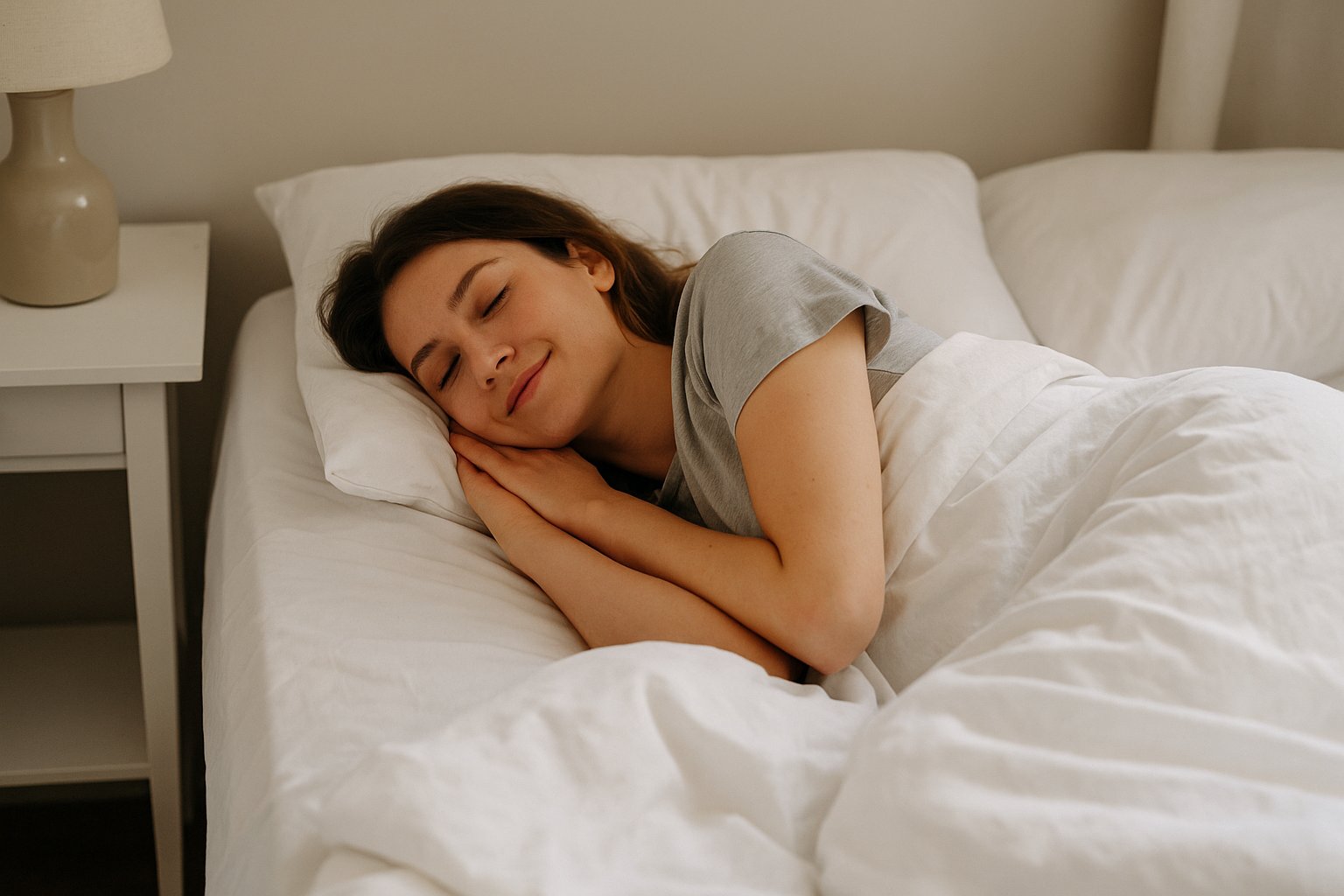Better Sleep Without Spending More
You do not need new pillows, smart beds, or supplements to start sleeping better. Good rest often comes from simple changes in routine and environment that cost nothing at all. By paying attention to light, timing, and daily rhythm, you can train your body to fall asleep faster and stay asleep longer.

Rethinking Your Evenings
Your body begins preparing for sleep long before you get into bed. Sleep Foundation explains that light exposure in the evening can delay melatonin release and make it harder to wind down. Try dimming lamps an hour before bed and avoiding screens or bright overhead light. Gentle routines such as washing dishes, stretching, or reading send clear signals that the day is ending. If you watch television at night, lower the brightness and keep the room softly lit to reduce glare. These habits help the brain link quiet light with rest instead of alertness.
Temperature and Comfort
You do not have to buy new bedding to create a more restful space. Mayo Clinic recommends setting the bedroom temperature between sixty and sixty-seven degrees Fahrenheit for optimal sleep. If you cannot control the thermostat, a small fan or light blanket swap can make a major difference. Cotton or linen sheets breathe better than synthetic materials, which helps keep the body cool. Even washing sheets more often can improve airflow and comfort. The goal is to make your space feel clean, cool, and consistent each night.
Timing and Consistency
One of the strongest signals for better sleep is a steady schedule. Harvard Health notes that going to bed and waking up at the same time every day trains the body’s internal clock. Try to set a wake-up time you can keep even on weekends. Avoid hitting snooze since those short bursts of extra sleep confuse the body. If you cannot fall asleep after twenty minutes, leave the bed and read quietly until you feel tired again. This prevents your brain from linking the bed with frustration.
Food, Caffeine, and Evening Habits
Late meals and caffeine are common culprits behind poor sleep. Cleveland Clinic advises finishing dinner at least two hours before bedtime and limiting caffeine after midday. Swap coffee for herbal tea or warm milk in the evening. Heavy, spicy, or sugary foods can trigger digestion problems that keep you awake. Alcohol may make you sleepy at first but often disrupts deep sleep later in the night. Keep your evening snacks small and light, focusing on foods rich in magnesium or tryptophan such as bananas, oats, or almonds.
Morning Choices That Matter
Better nights start with better mornings. Johns Hopkins Medicine suggests getting sunlight within an hour of waking to reset your circadian rhythm. A brief walk or even standing by a sunny window can help regulate melatonin production and improve sleep quality that night. Exercise during the day also helps, but try to finish intense workouts at least three hours before bed so your heart rate can return to normal. When your body’s clock aligns with natural light and dark patterns, sleep tends to come easier without any extra effort.
A Rest You Can Rely On
Improving sleep is less about products and more about pattern. Simple, free changes in light, timing, and environment can transform how rested you feel in the morning. You do not need to chase a perfect setup or expensive gadget. You only need consistency and a little self-awareness. Small decisions made today can give you a calmer night and a clearer morning tomorrow.
Sources
Sleep Foundation
Mayo Clinic
Harvard Health
Cleveland Clinic
Johns Hopkins Medicine
